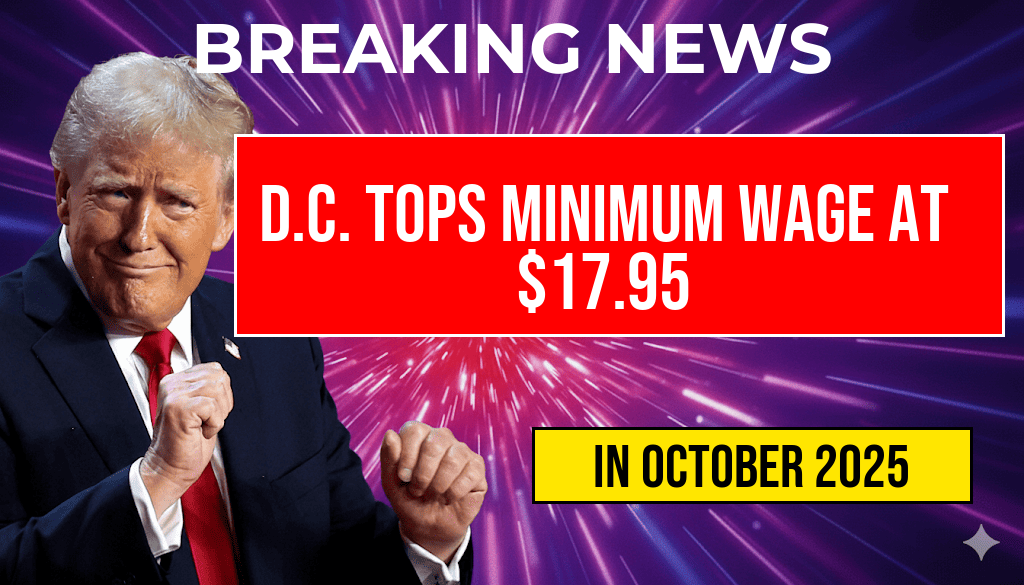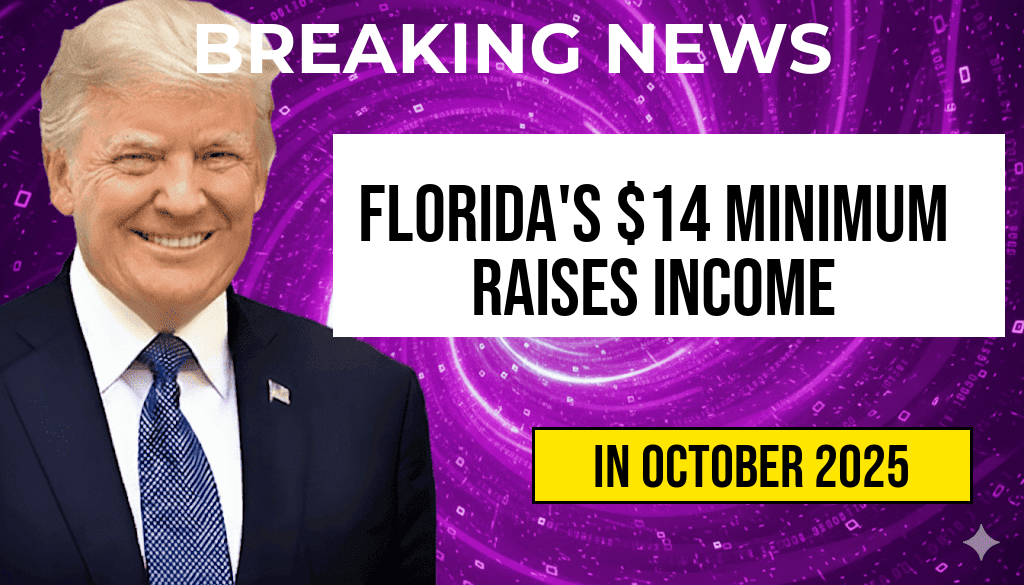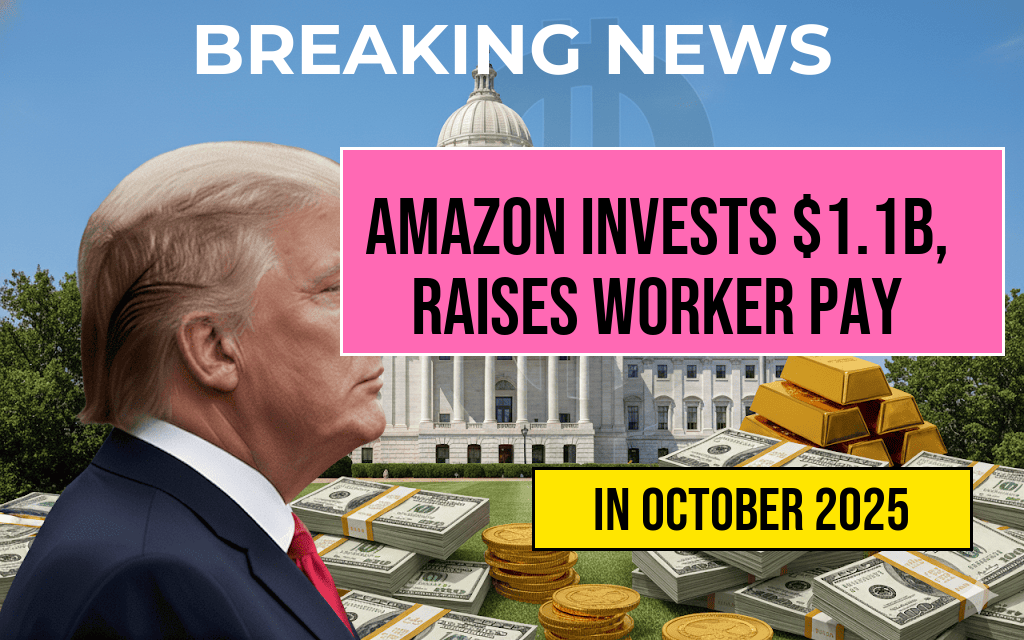Washington D.C. has solidified its position as the U.S. city with the highest minimum wage, setting the bar at $17.95 per hour. This figure surpasses many other major metropolitan areas, reflecting ongoing efforts by local policymakers to address economic disparities and improve living standards for low-wage workers. The city’s commitment to maintaining a leading wage floor is part of a broader trend among jurisdictions aiming to balance economic growth with fair compensation. As debates over minimum wage policies intensify nationwide, D.C.’s approach offers a notable benchmark for municipalities considering similar measures. Workers in sectors such as retail, hospitality, and public services continue to benefit from these elevated standards, although discussions about potential impacts on employment and small business viability persist among critics and supporters alike.
Background on Washington D.C.’s Minimum Wage Policy
The District of Columbia’s minimum wage has been steadily increasing over the past decade, driven by local legislation and voter initiatives. As of 2023, the city’s wage surpasses the federal minimum of $7.25 per hour, which has remained unchanged since 2009, and exceeds other major urban centers like New York City and San Francisco. The city’s recent minimum wage adjustment was part of a phased plan aimed at reaching a target of $18.00 per hour by 2025, reflecting a broader commitment to combating income inequality.
According to the D.C. Department of Employment Services, the current wage applies to large employers, with smaller businesses subject to slightly different thresholds and phased implementation schedules. The city’s policy also includes provisions for tipped workers and those in the hospitality sector, ensuring that wage standards extend across various industries. The policy’s design emphasizes gradual increases to mitigate potential economic shocks while ensuring workers benefit from improved compensation.
Comparison with Other Major Cities
| City | Minimum Wage | Notes |
|---|---|---|
| Washington D.C. | $17.95 | Highest among U.S. cities, phased increase to $18 by 2025 |
| Seattle, WA | $18.00 | Effective since 2022, with scheduled increases |
| San Francisco, CA | $16.99 | One of the highest in California, adjusted annually |
| New York City, NY | $15.00 | Statewide minimum wage for NYC |
While D.C. leads in the national ranking, the increasing wages reflect a pattern among progressive cities seeking to address economic disparities. Local policymakers argue that competitive wages are vital for attracting workers and reducing reliance on public assistance programs. Conversely, some business associations warn about potential pressures on small enterprises and the risk of job reductions, especially in sectors with tight profit margins.
Economic Impacts and Public Response
Benefits for Workers and the Local Economy
Advocates highlight that the elevated minimum wage in Washington D.C. directly benefits thousands of low-income workers, enabling better housing, healthcare, and educational opportunities for families. Data from the Economic Policy Institute suggests that higher wages can lead to increased consumer spending, which may bolster local businesses and stimulate economic activity.
Moreover, D.C.’s policy aligns with efforts to reduce income inequality within the district, which has historically exhibited significant disparities compared to national averages. The city’s approach is viewed by supporters as a model for balancing economic growth with social equity.
Concerns and Criticisms
Critics raise concerns that escalating wages could lead to unintended consequences such as increased automation, reduced employment opportunities, or higher prices for consumers. Small business owners in particular express apprehension over the rising operational costs, especially in sectors like hospitality and retail, where profit margins are often thin.
According to a study published by the Brookings Institution, the effects of minimum wage hikes are complex and can vary based on local economic conditions. While some research indicates minimal employment reductions, others suggest that small businesses may face challenges in absorbing increased labor costs.
Future Outlook and Policy Considerations
Washington D.C. continues to refine its minimum wage policies with an eye toward sustainability and economic resilience. Ongoing discussions involve assessing the impacts of wage increases on employment levels, housing affordability, and overall cost of living. The city’s government also emphasizes the importance of supporting small businesses through targeted grants and technical assistance programs.
Looking ahead, policymakers are considering potential adjustments based on economic indicators and workforce feedback. The goal remains to maintain D.C.’s status as the leader in minimum wage standards while ensuring that economic growth remains inclusive and balanced.
For more on the evolving landscape of minimum wages across the U.S., resources such as Wikipedia’s overview of minimum wages in the U.S. provide extensive historical context and policy analysis.
Frequently Asked Questions
What is the current minimum wage in Washington D.C.?
The minimum wage in Washington D.C. is currently set at $17.95 per hour, making it the highest among U.S. states and territories.
How does Washington D.C.’s minimum wage compare to other states?
Washington D.C. leads the nation with the highest minimum wage, surpassing many states that have lower wage rates, reflecting its commitment to fair compensation for workers.
Are there any recent changes to Washington D.C.’s minimum wage laws?
Yes, recent adjustments have kept the minimum wage at $17.95 per hour, aligning with ongoing efforts to increase wages and improve living standards for workers in the district.
Which workers are covered by Washington D.C.’s minimum wage law?
The minimum wage law in Washington D.C. applies to most private sector employees, including service workers, retail employees, and restaurant staff.
How does the high minimum wage impact businesses in Washington D.C.?
The high minimum wage can influence business operations by potentially increasing costs, but it also promotes a more equitable economy and supports worker retention and satisfaction.




